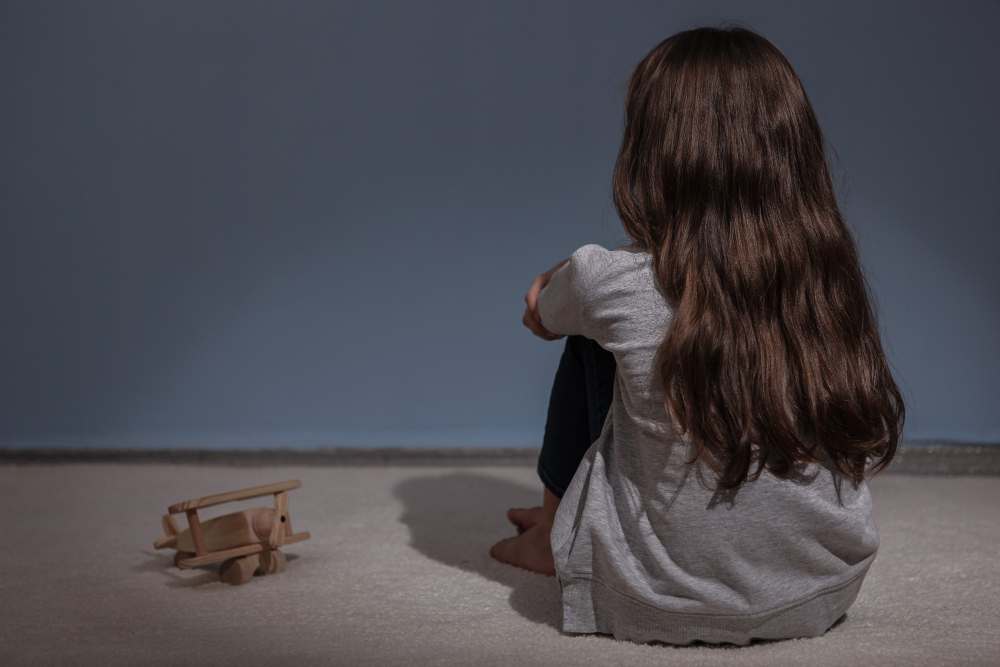
Childhood is often seen as a time of innocence and discovery, but for many individuals, it may also bring experiences of pain and hardship. Trauma experienced during childhood can leave lasting effects, shaping one’s emotional, physical, and psychological development well into adulthood. Whether it stems from abuse, neglect, family dysfunction, or other distressing events, childhood trauma is not something people "just get over."
This blog will explore the long-term effects of childhood trauma, unpack how it impacts various aspects of life, and share insights into how trauma counseling in Orlando, FL, can guide individuals toward healing and wholeness.
What Is Childhood Trauma?
Childhood trauma refers to any event or series of events experienced by a child that causes overwhelming stress, fear, or feelings of helplessness. These events may include abuse (physical, emotional, or sexual), neglect, domestic violence, bullying, the loss of a loved one, or living through a natural disaster.
Unlike isolated negative experiences, childhood trauma is often repeated or ongoing. Its effects can infiltrate a person’s physical health, emotional well-being, and relationships in ways that may not fully surface until adulthood.
How Childhood Trauma Affects the Brain and Body
Childhood trauma reshapes the developing brain. Key areas of the brain responsible for memory, emotion regulation, and decision-making undergo lasting changes when exposed to chronic stress. Here’s a closer look at some ways childhood trauma manifests in the body and brain long-term:
Impacts on Emotional Regulation
For individuals with trauma, the amygdala, the brain’s fear and threat system, often becomes hyperactive. This can result in heightened sensitivity to stress and frequent feelings of anxiety or panic. The prefrontal cortex, responsible for rational thinking, may struggle to balance emotions, leading to challenge in managing anger or sadness.
Higher Risk of Chronic Health Conditions
Trauma doesn’t just impact the brain; the body often bears the brunt as well. Research shows that adults who experienced childhood trauma have a higher likelihood of developing conditions like heart disease, obesity, diabetes, autoimmune disorders, and even chronic pain due to prolonged exposure to stress hormones like cortisol.
Disrupted Development
The stress caused by trauma can disrupt a child’s ability to learn, bond, and explore the world safely. This developmental disruption can create difficulties in managing healthy adult relationships, navigating conflict, or feeling secure in day-to-day interactions.
The Role of ACEs (Adverse Childhood Experiences)
Adverse Childhood Experiences, or ACEs, provide a framework for identifying harmful events that can have far-reaching effects. A landmark study showed that individuals with high ACE scores are significantly more at risk for poor mental and physical health outcomes, including depression, substance abuse, and a higher propensity toward risky behavior.
Emotional and Psychological Effects
The long-term psychological outcomes of untreated childhood trauma can deeply affect a person’s emotions and relationships. These effects often manifest as:
Struggles with Self-Esteem
Children growing up in traumatic environments often internalize blame for what happened. This can lead to feelings of unworthiness or chronic self-doubt as adults.
Difficulty in Forming Trusting Relationships
Those with histories of neglect or abuse often struggle to trust others, fearing rejection or betrayal. This can impact romantic relationships, friendships, or workplace dynamics.
Anxiety and Depression
Unresolved trauma frequently contributes to lifelong struggles with mental health, including generalized anxiety disorder, post-traumatic stress disorder (PTSD), and major depressive disorder.
Emotional Numbing
Some individuals respond to unprocessed trauma with emotional suppression and avoidance. Over time, this leads to detachment or difficulty connecting deeply with others.
Breaking the Cycle of Trauma
While the ripple effects of trauma are significant, healing is possible. The process often requires a safe environment and therapeutic support. Trauma counseling in Orlando, FL, is designed to meet individuals where they are, providing tools to unpack the impact of past experiences and rebuild a sense of safety and control.
The Goals of Trauma Counseling
- Exploring the Root Cause: Understanding the specific events or environments that led to trauma.
- Reframing Negative Beliefs: Challenging the patterns of self-blame or shame associated with past events.
- Developing Healthy Coping Mechanisms: Learning safe and effective ways to regulate emotions and respond to triggers.
- Building Support Networks: Encouraging healthy social connections to foster trust and emotional safety.
Trauma-focused therapies such as EMDR (Eye Movement Desensitization and Reprocessing), cognitive-behavioral therapy (CBT), and mindfulness-based interventions are among the many evidence-based approaches being used to help people heal.
Steps to Begin the Healing Process
Healing from childhood trauma is not linear, nor is it one-size-fits-all. Here are some actionable steps that can help anyone on their way to recovery:
- Acknowledge and Accept
Recognize that what happened to you was not your fault and that the trauma’s effects are valid and real.
- Seek Professional Support
Look for a trauma-focused therapist who specializes in addressing your unique needs. For those in Orlando, FL, options like Orlando Thrive Therapy offer expert counseling tailored to help process childhood trauma.
- Practice Mindful Self-Care
Engage in activities that nurture your body and soul, such as yoga, journaling, or meditation, to create a sense of calm and stability.
- Connect with Others
Find groups or forums where people with similar experiences share their stories, making it easier to release feelings of isolation or fear.
- Trust the Journey
The healing process may not happen overnight, but every step forward is progress worth celebrating.
Unlock Healing with Trauma Counseling
Childhood trauma can profoundly affect a person’s life, but it doesn’t need to define their future. The path to healing and reclaiming your emotional wellbeing starts with the right support and actionable strategies. If you're seeking trauma counseling in Orlando, FL, contact Orlando Thrive Therapy today to schedule a consultation.
Our team of experienced counselors is passionate about helping individuals overcome their past and create a thriving, empowered life moving forward. Begin your healing today—we’re here to help.
